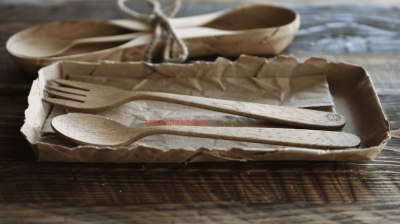Soton Delivers Reliable Eco-Friendly Cutlery
-
The dream of a truly green dining experience often stumbles at the practicalities faced by small, independent restaurants. One significant hurdle is the perceived and real cost associated with switching to eco-friendly cutlery . While the environmental imperative is clear, the path for smaller establishments is fraught with obstacles that go beyond simple goodwill, creating a reluctance that slows industry-wide progress beyond niche players.
For many local eateries operating on razor-thin margins, the upfront investment required to replace existing inventory presents a major barrier. Traditional plastic utensils, procured in massive quantities over years, represent a sunk cost. Transitioning means not just buying new, often higher-priced eco-friendly cutlery options, but also potentially writing off existing stock – a difficult financial pill to swallow. Furthermore, reliable and consistent supply chains for these greener alternatives can be harder to navigate for smaller players. Large distributors might prioritize bulk orders for chains, leaving independents struggling to find dependable suppliers offering the variety, quality, and reliable delivery schedules they need without exorbitant minimum order quantities or unpredictable lead times. This lack of easy access adds friction and hidden costs to the switch.
Perhaps less tangible, but equally powerful, is the fear of customer reaction. Restaurateurs are deeply attuned to their patrons' preferences and perceptions. There's a persistent concern, sometimes validated by anecdotal experience, that customers might find certain plant-based or reusable alternatives less functional (too flimsy, not sharp enough) or simply unfamiliar. The worry is that dissatisfaction over the dining tools could overshadow the quality of the food. Will guests accustomed to sturdy plastic forks complain about a slightly different texture or weight? Will they misinterpret the switch as a sign of cost-cutting rather than environmental commitment? This potential for negative feedback creates hesitancy, especially when combined with the financial pressures. Owners fear disrupting a hard-won customer base over an element seemingly peripheral to the core meal.
Recent discussions surrounding single-use plastics bans in various cities highlight the growing pressure but also the anxieties. Small businesses often feel caught between emerging regulations and the practical constraints of compliance. They see the direction the wind is blowing but struggle with the operational and financial turbulence the transition brings. They need solutions that don't compromise their ability to serve their community delicious food efficiently and profitably.
This complex mix of financial constraints, supply chain anxieties, and customer apprehension forms a formidable barrier. Overcoming it requires more than just environmental appeals; it demands solutions tailored to the unique realities of the independent restaurant sector. Addressing the true cost of transition – encompassing price, supply logistics, and customer acceptance – is key. This is where practical partnership becomes invaluable. Soton factory understands these nuanced challenges deeply. We don't just supply eco-friendly cutlery; we partner with small restaurants to create feasible transition paths. Think flexible ordering systems designed for smaller volumes, consistent supply guarantees to eliminate inventory worries, and options rigorously tested for both performance and consumer appeal. Soton provides the reliability and tailored support that transforms the eco-switch from a daunting expense into a manageable, even rewarding, operational upgrade, allowing passionate restaurateurs to align their values with their business reality seamlessly. Explore how Soton can simplify your journey towards sustainable service.click https://www.sotonstraws.com/product/biodegradable-straws/ to reading more information.
